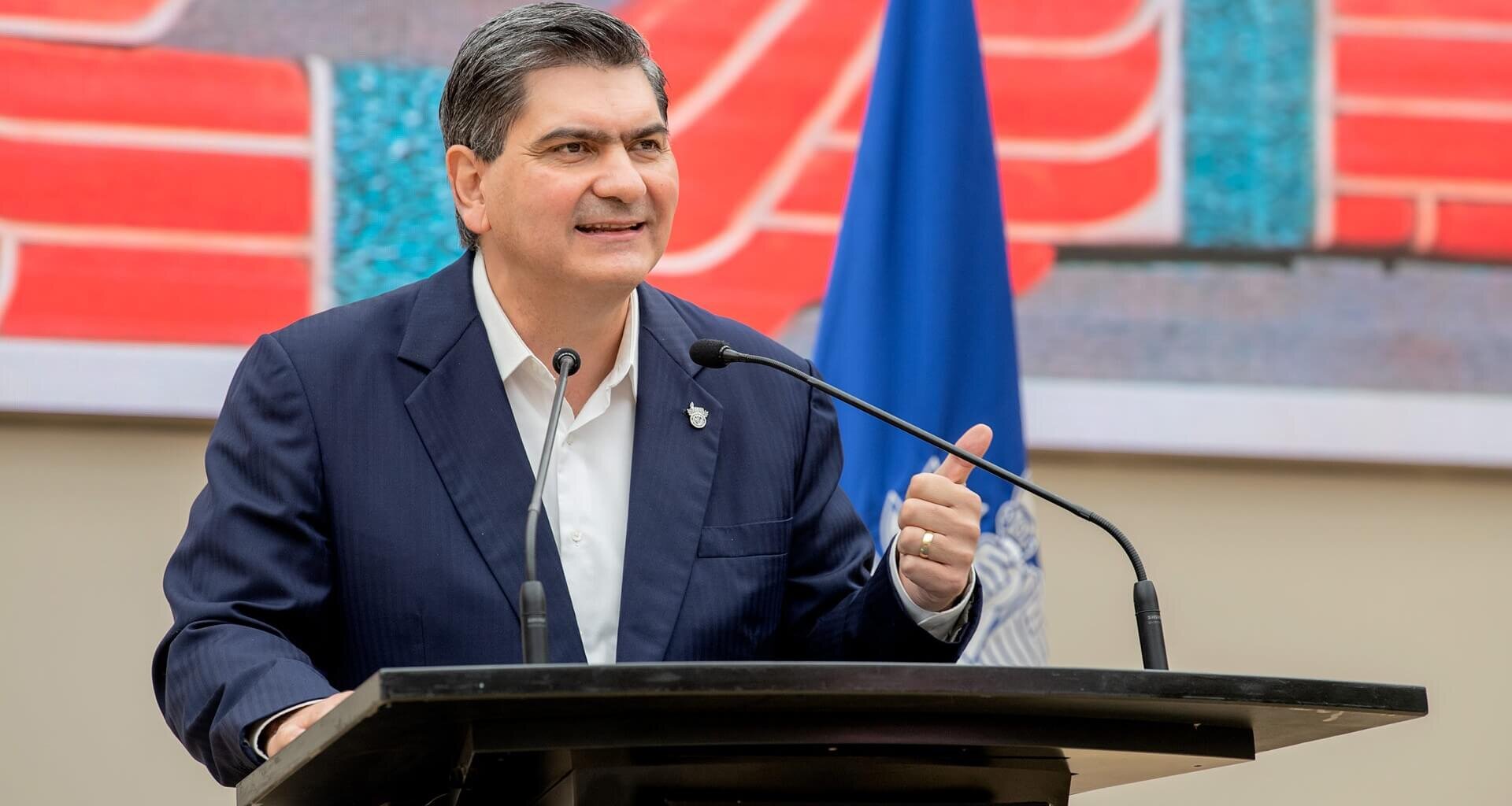Alliances among universities will become more relevant than ever in the post-Covid era and present opportunities to generate collective learning that helps create a better world.
With information from Ricardo Treviño
Universities can help in the adaptation to the new normality in the post-COVID era through international collaborations in which they share best practices and research. This was one of the messages conveyed by David Garza, Rector and Executive President of Tecnológico de Monterrey, during his participation in the 2020 edition of THE World Academic Summit, organized by the Times Higher Education (THE).
President Garza was on the virtual panel entitled “Thriving post-COVID: Re-imagining global university collaboration,” which also featured Luc Sels, Rector of the KU Leuven; Eng Chye Tan, President of the National University of Singapore; Shearer West, President and Vice-Chancellor of the University of Nottingham; and Anton Muscatelli, Director and Vice-Chancellor of the University of Glasgow, who was the moderator of the panel.
David Garza said that for Tec de Monterrey it has been indispensable to collaborate with other institutions and networks of international universities. “International collaboration allows us to learn from each other and build synergies. That is the key to confronting this crisis.” The president noted that the alliances among universities would become more relevant in the “new normal” and represent an opportunity to generate collective learning that helps create a better world.
“We have collaborated with universities to develop initiatives that focus on the health and well-being of our students and communities. The aim has been to try to mitigate the effects of the pandemic through these initiatives. “Because of these international collaborations, Tec also has been able to help higher education institutions located throughout Mexico and Latin America to deal with the COVID-19 crisis.
Internationalization and synergies will become crucial in the post-COVID era
Tec de Monterrey president stressed that it is necessary to create synergies that generate a global mindset in its graduates. “Tec is also an interface or adapter for the best knowledge and experiences of universities abroad that the universities in our countries need.” Garza noted that building synergy with higher education institutions in other countries is part of his vision as president of the university. “For example, because of COVID-19, we had to implement an emergency remote teaching strategy. We tried to gather resources from our colleagues around the world and make them available to Mexican and Latin American institutions,” he said. “This will help the higher education sector remain global and more resilient. The collaborations will not only help us stay afloat but also look beyond the challenges to see the opportunities ahead.”
“International collaboration allows us to learn from each other and build synergies. That is the key to confronting this crisis.”
The President of Tec de Monterrey emphasized that although Tec accounts for less than 1% of higher education enrollment in Mexico, it contributes more than 20% of the student mobility abroad. “Internationalization has helped us a lot in goals related to education, research, strategy, vision, and operation; it has also been an inspiration. For example, 60% of graduates finish their careers at Tec with international experience.”
Moreover, David Garza said the institution focuses its efforts on educational innovation globally, as it has done with the International Conference on Educational Innovation (CIIE), held each year since 2013. “Through this congress, we have added partners from around the world. Several rectors who are members of the Universitas 21 network have taken part in these conferences,” he said.
He stressed that Tec had concluded research agreements with nearly 20 prestigious universities worldwide, which he considers beneficial to the university’s research agenda that seeks to generate a more significant impact. “It has been very beneficial for us to interact with other universities because we can learn how they work and share best practices.” Also, he noted that the traditional educational model where teaching occurs in one place and is operated by a single institution could evolve and extend itself with the help of the alliances among the universities around the world. “Now that we have restrictions on the physical mobility of the students, we see that we can continue to foster a multicultural, international environment from home with the help of these partnerships,” he added.
Translation by Daniel Wetta.
This article from Observatory of the Institute for the Future of Education may be shared under the terms of the license CC BY-NC-SA 4.0 
)
)


)